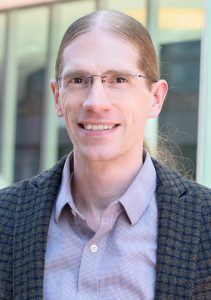 We are extremely pleased to announce that Curtis Huttenhower has been promoted to Professor of Computational Biology and Bioinformatics!
We are extremely pleased to announce that Curtis Huttenhower has been promoted to Professor of Computational Biology and Bioinformatics!
The message below is adapted from Dean Michelle Williams announcement:
Dr. Huttenhower’s primary research is in the study of microbial communities, using methods such as DNA sequencing to understand microbes within different ecosystems, including those of the human body. His work includes computational biology at the intersection of microbial community function and human health. He develops methods that use molecular data to characterize the diversity of these microbial ecosystems, with the goal of linking their variations to human health and disease. Since 2010, he has been a principal investigator in the Human Microbiome Project (HMP), an initiative from the National Institutes of Health that aims to characterize the human microbiome and develop new computational and data resources for human microbiome studies. Dr. Huttenhower’s work enabled the HMP to link disruptions of the gut microbiome to inflammatory bowel disease.
Dr. Huttenhower earned a BS in computer science, chemistry, and mathematics from Rose-Hulman Institute of Technology. After working as a software design engineer at Microsoft, he went on to earn an MS in language technologies from Carnegie Mellon University and a PhD in computer science from Princeton University. He was a postdoctoral researcher in computer science at Princeton from 2008 to 2009. Dr. Huttenhower joined the School as assistant professor of computational biology and bioinformatics in 2009. In 2013, he was promoted to associate professor of computational biology and bioinformatics. He is a faculty member in the biological sciences and systems biology programs and is affiliated with both the Dana-Farber/Harvard Cancer Center and the Harvard Microbial Sciences Initiative. He is a member and currently a core director of the Center for the Study of Inflammatory Bowel Disease at Massachusetts General Hospital and an associate member of the Broad Institute. He is the recipient of a National Science Foundation CAREER Award, a Presidential Early Career Award for Scientists and Engineers, and the Overton Prize of the International Society of Computational Biology.



